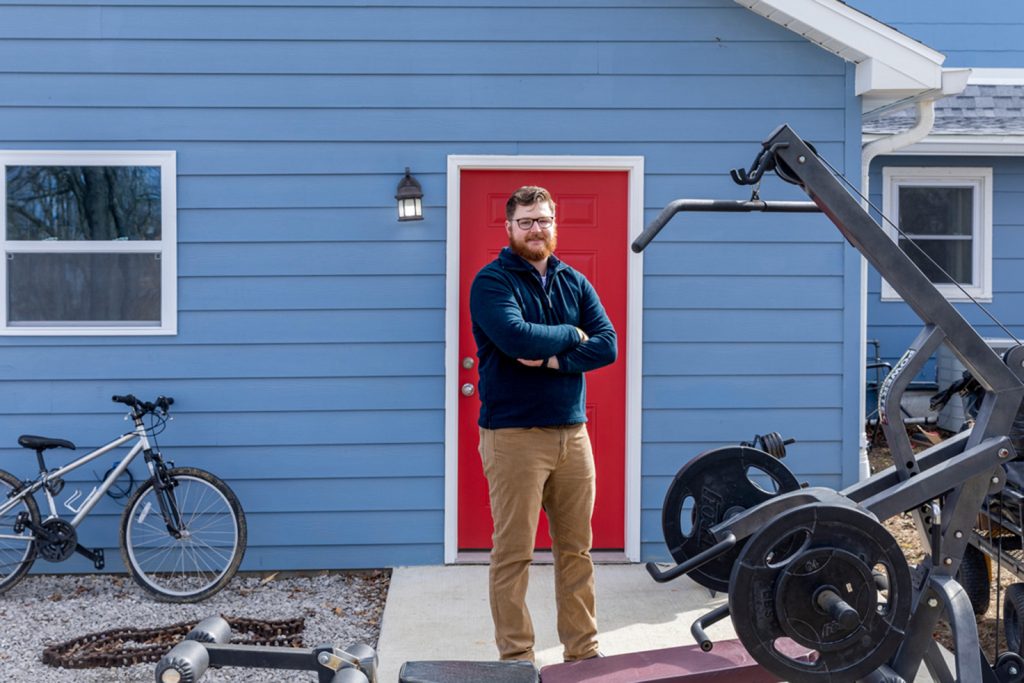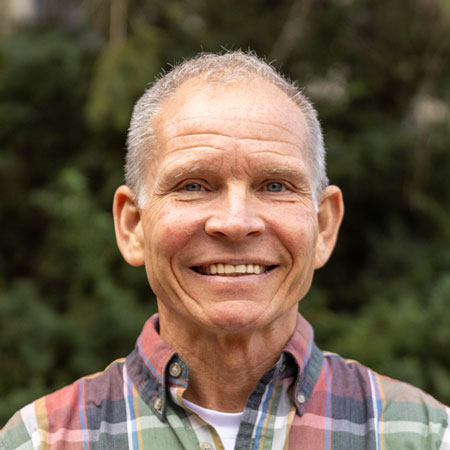News & Announcements
Pandemic sparks transition from law enforcement to social work
March 21, 2023
By Mia Hollander

One way or another, the COVID-19 pandemic changed us all.
Some people emerged from the pandemic feeling lost and confused. Some people felt physically and emotionally exhausted. And some people were driven to make a change.
For Morgan Long, the pandemic inspired him to explore a new passion: social work and its interaction with law enforcement.
Long began his law enforcement career back in 2018 at the Howard County Sheriff’s Office as a deputy sheriff. Right off the bat, he found he was most passionate about crisis intervention and the other social services that law enforcement officers provide. When the pandemic hit, Long took a step back and started working part time as a deputy sheriff at the same department.
“I was trying to figure out what to do with my life,” Long said. “I connected with a case worker I used to work with — a community behavioral health liaison who graduated from the MU School of Social Work program. She advised me to think more about social work. Immediately, I looked into it and applied.”
The consequences of incarceration
While working in law enforcement, Long said he hadn’t initially given a lot of thought to what happens after someone is arrested and incarcerated. But as he transitioned into social work, he began to consider the cascading consequences of these interactions with law enforcement.
That newfound curiosity and passion for helping these individuals overcome the myriad challenges they face steered Long toward in2Action, a Columbia-based nonprofit. The recovery support program provides services and transitional housing to people recently released from prison, individuals who might be at risk of incarceration and people with a history of substance use.
As part of his Master of Social Work degree at the University of Missouri School of Health Professions, Long is completing his practicum at in2Action. All MSW students must complete at least one field practicum reflective of their chosen area of concentration.
“When I started to do my interview for in2Action, I talked about my passions and area of interest in public services,” Long said. “I knew the program they were working on was something that I wanted to dive deep into.”
Making a difference in local lives
At in2Action, Long is implementing a major program funded by the National Association of County and City Health Officials and the Centers for Disease Control and Prevention. The project sits at the intersection of public safety and public health, with a focus on education and community response related to the ongoing opioid epidemic.
“The overall goal of our project is to build on the work that two recovery coalitions in Boone Country are already doing,” Long said. “We are creating a trauma-informed, recovery-oriented system of care to better serve members of our community who are at risk for overdose or substance use.”
One of the main objectives is to develop an accessible website where community members can gain a comprehensive view of the services available locally. The website eventually will have a back end for providers to collaborate on tactics to help their individual patients.
At the moment, however, project contributors like Long are diligently working on a community needs assessment to better inform this goal and learn more about the community as a whole.
Dan Hanneken, founder of in2Action and assistant teaching professor with the School of Health Professions, said Long’s work has been instrumental in making this ambitious program a reality for area residents.
“The better we can collaborate and work together in Boone County, the bigger impact we can make on substance misuse and overdose,” Hanneken said. “This is the aim of our current work.”
Although Long’s practicum concludes upon his graduation in May, he said he plans to stay involved with in2Action as long as they will have him.
“This practicum has not only opened me up to the recovery support community, but it has also allowed me to get connected and work closely with agencies and people in my community working in and around public safety,” Long said. “The influence from my practicum has been really supporting me in finalizing what my future plans are going to look like and supporting me in making the connections to make these plans come together.”
Featured in this post
